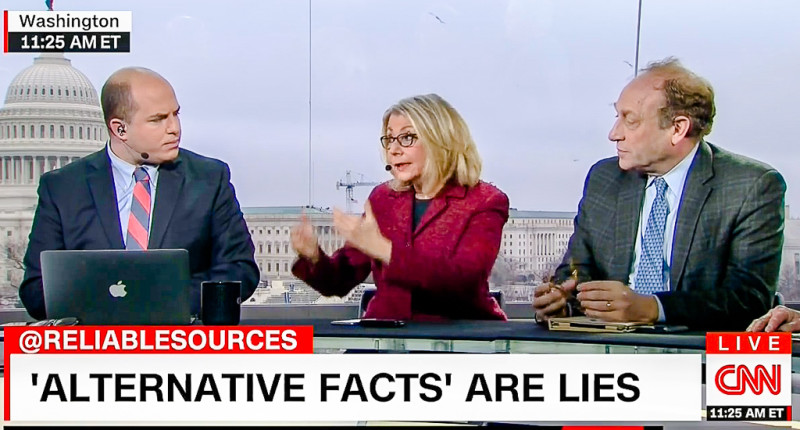Truth! The Ultimate Power in Business: Countering the Rise of Lies, Half-truths, and Omissions

One of the things that really annoys me is when pundits characterize these fast-talking characters who spew out words a hundred miles a minute, by calling them “great” or “successful” businesspeople. These descriptions often follow video of the subject glazing over facts and casually dismissing objective questions or counter arguments. They just barrel ahead full speed, spitting out rhetoric with such conviction, that the casual observer is at best, easily persuaded—or at the very least, very confused by what they’re observing.
Unfortunately, many people still believe that selling is about persuasion at any cost. They are subscribing to the debunked notion that the slicker the talk, the better the seller. The current political discourse does little to counter these negative perceptions bringing it front and center in the minds of millions of people. I’ve had the honor of working with and knowing so many truly great business leaders, and equating them with dishonesty and questionable ethics is not only a false equivalency, it’s flat out disrespectful.
Much of the reason for this public perception stems from the false premise that “great” or “excellent” deal makers and “doing things the right way,” are one in the same. But the reality is that unethical characters could also be among the top achievers. They may even make more money in part because they value “closing the deal” more than satisfying the customer or doing the right thing for others.
Here are the real facts. Great businesspeople don’t lie to their clients. They don’t lie to their employees. They don’t lie to their families or to anyone for that matter. OK, let’s break that down since lying is such a strong word. Consider the following definition of the word lie from Webster’s dictionary:
noun
1. A false statement made with deliberate intent to deceive; an intentional untruth; a falsehood.
While there are an assortment of words used to describe a lie—untruths, falsehoods, misstatements, half-truths, and omissions to name a few, they all boil down to the same simple meaning…an intentional deception.
Truly great business people recognize that excellence is marked by an ethical balance of both quantitative outcomes as well as qualitative behaviors. This involves doing the right thing even if it means not closing the deal especially when obtaining it compromises reasonable moral standards. I strongly believe that most people who find themselves conflicted with telling lies to achieve their objectives don’t start out with that intention. Lying and all of its first cousins like half-truths, omissions, and rolling disclosure typically start out with a smaller “white” lie, if you will, and before you know it, quickly becomes a slippery slope into the world of falsehoods and alternative facts.
To avoid ethical misteps, consider these 3 guiding principles of TRUTH:
- Follow the Golden Rule
Ask yourself these questions: Would you want to be tricked into a decision by not having all the necessary information to make the right decision? How would you feel if someone told you that their alternativefacts are equal to the actual facts? That up is down and down is up? We all know about the Golden Rule, and it applies to business just the same... treat others the way you would want to be treated.
2. The ends do not always justify the means
Avoid conflating business results with doing the right things. Certainly, by doing the right things, you will do well but there are those who achieve results by using unethical methods. In today’s business world, it’s foolish to try to manipulate people in a negative way—most people can see right through these techniques. Effective communication is about listening, exchanging ideas and presenting solutions that add value to businesses and to people’s lives.
3. Recognize that winning at all costs may not be winning at all
While manipulating people through lies and deception may seem worth it at least in the short term, history shows that these benefits do not outlive time. That’s because truth has a way of winning out as time marches on. It may take one year or 50 years, but eventually the lie is exposed and oftentimes, the perpetrator loses much more than they thought they had gained. What is the value of a reputation? What is the value of losing the respect of the public, or perhaps even worse, one’s own family and friends? To most of us, these values mean much more than status or monetary gains. We must not just say that our values are important, we must show it in our actions.
I love the profession of business selling. I have dedicated my career trying to help businesspeople achieve their goals but to do so in the most honorable and ethical way. When we truly understand success, we discover that it’s not about the destination, it’s about the journey.
The great John Wooden’s definition of success says it all in one powerful sentence:
"Success is peace of mind, which is a direct result of self-satisfaction in knowing you made the effort to do your best to become the best that you are capable of becoming."
Be TRUE to yourself in all you do.
Let’s Go!